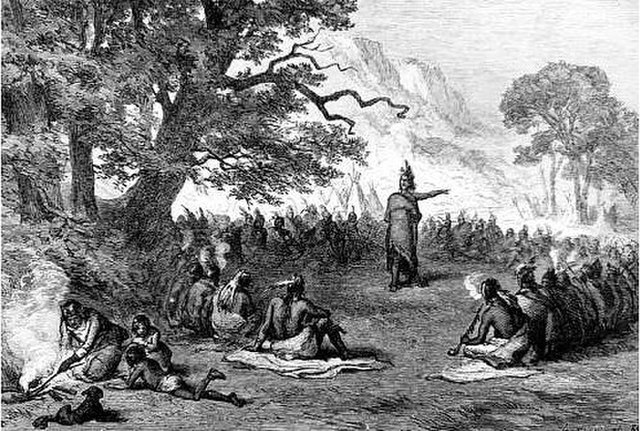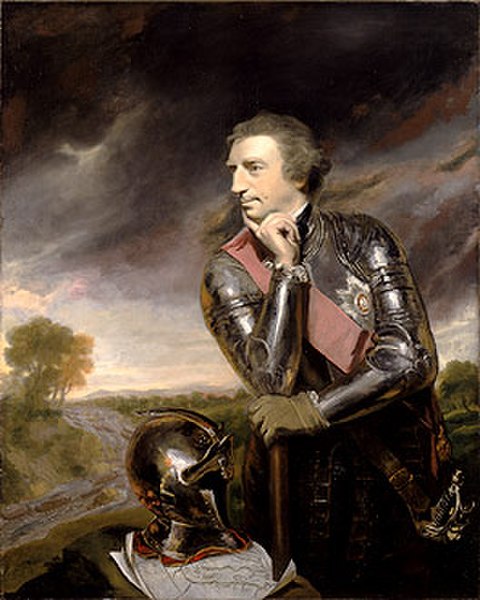Henry Bouquet was a Swiss mercenary who rose to prominence in British service during the French and Indian War and Pontiac's War. He is best known for his victory over a Native American force at the Battle of Bushy Run, lifting the siege of Fort Pitt during Pontiac's War. During the conflict Bouquet gained lasting infamy in an exchange of letters with his commanding officer, Jeffery Amherst, who suggested a form of biological warfare in the use of blankets infected with smallpox which were to be distributed to Native Americans. Despite this indictment historians have praised Bouquet for leading British forces in several demanding campaigns on the Western Frontier in which they "protected and rescued" settlers from increasingly frequent attacks.
Portrait by John Wollaston, c. 1759
Pontiac's War was launched in 1763 by a loose confederation of Native Americans who were dissatisfied with British rule in the Great Lakes region following the French and Indian War (1754–1763). Warriors from numerous nations joined in an effort to drive British soldiers and settlers out of the region. The war is named after Odawa leader Pontiac, the most prominent of many indigenous leaders in the conflict.
In a famous council on April 27, 1763, Pontiac urged listeners to rise up against the British (19th century engraving by Alfred Bobbett)
The policies of General Jeffrey Amherst, a British hero of the Seven Years' War, helped to provoke Pontiac's War (oil painting by Joshua Reynolds, 1765).
Pontiac takes up the war hatchet
Massacre of the Indians at Lancaster by the Paxton Boys in 1763, a historically inaccurate lithograph published in John Wimer's 1841 Events in Indian History





